Description
Sorry, we can not ship to CA, OR, WA or Canada.
Latin: Corylus americana
Other Common Names: American hazel, American hazelnut, filbert
Hardiness Zones: 4-9
Mature Height: American hazelnut typically reaches a height of 8-16 ft (2-5 m) and features multiple stems. The crown is rounded with a spread ranging from 10 to 15 feet. It generally exhibits a rapid growth rate (Missouri Botanical Garden).
Soil / Climate: This species thrives in medium soils under full sun to part shade conditions (Missouri Botanical Garden). It adapts well to various soil pH levels and types, with optimal growth observed in well-drained loams. While it can tolerate partial shade, plant density and fruit production are significantly reduced under such conditions.
Notes: American hazelnut produces root suckers, which can be managed to control plant spread. In spring, separate male and female catkins emerge. Male flowers are showy, appearing in yellowish-brown catkins measuring 2-3 in (5-8 cm), while female catkins, though less conspicuous, grow in short spikes and exhibit a reddish hue. Female flowers develop into edible nuts enclosed in leafy, fringed bracts, resembling eggs and measuring about 0.5 in (1 cm) in length. The nuts mature in mid to late summer and can be roasted, eaten, or ground into flour. The leaves are ovate, 3-6 in (7-15 cm) long, dark green, and have doubly toothed edges. They display a variety of colors in fall, ranging from bright red or orange to dull yellow or yellowish-brown (Missouri Botanical Garden). The bark is initially smooth and grayish-brown, developing slight texture as the tree matures (Virginia Tech).
American hazelnut is often planted by wildlife enthusiasts to attract and sustain game populations. The nuts serve as a critical food source for squirrels, deer, turkey, woodpeckers, pheasants, and other animals, while the male catkins are essential winter food for ruffed grouse.
Problems: American hazelnut is generally resilient but susceptible to blight, crown gall, and leaf spots, as well as pests like leafhoppers, leaf-eating caterpillars, and scale insects (Missouri Botanical Garden).
Wildlife: The nuts are a staple food for squirrels and birds, making American hazelnut a popular choice among wildlife enthusiasts to support local wildlife populations.
Cold Stream Farm supplies American Hazelnut trees which are grown as bare root seedlings and transplants and sold both wholesale and retail with no minimum order.
[Sources: Virginia Tech, Missouri Botanical Garden]

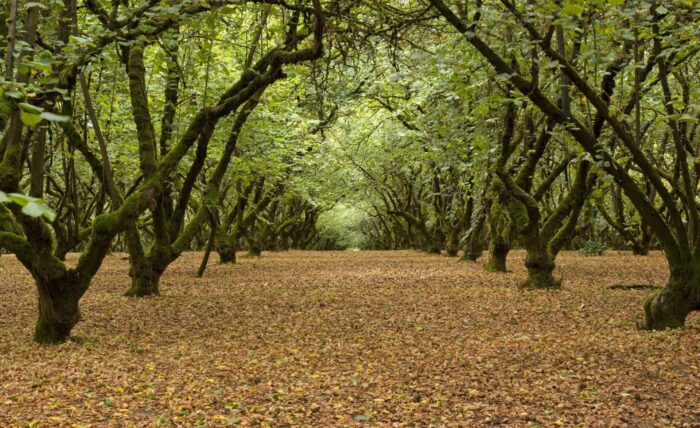
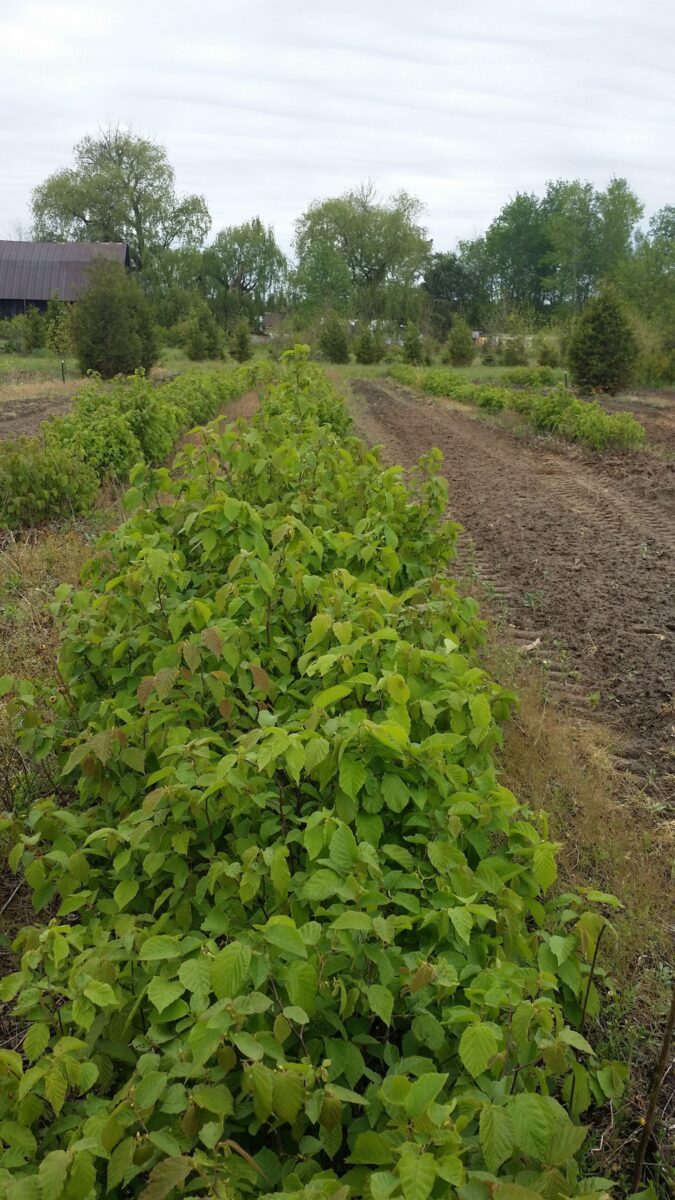
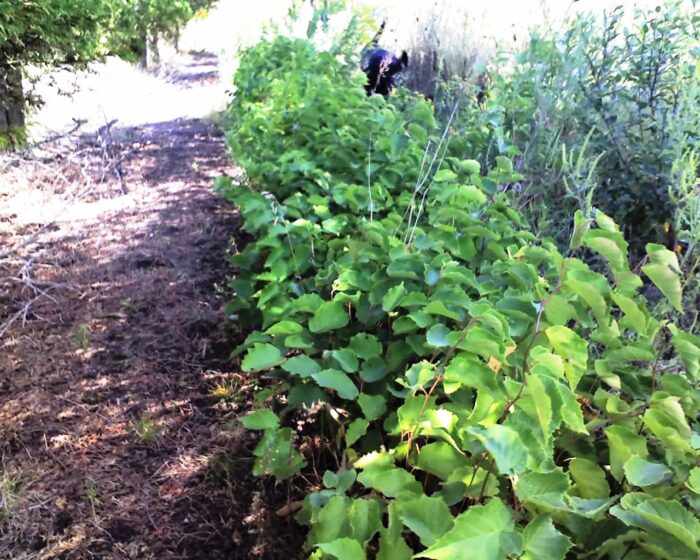
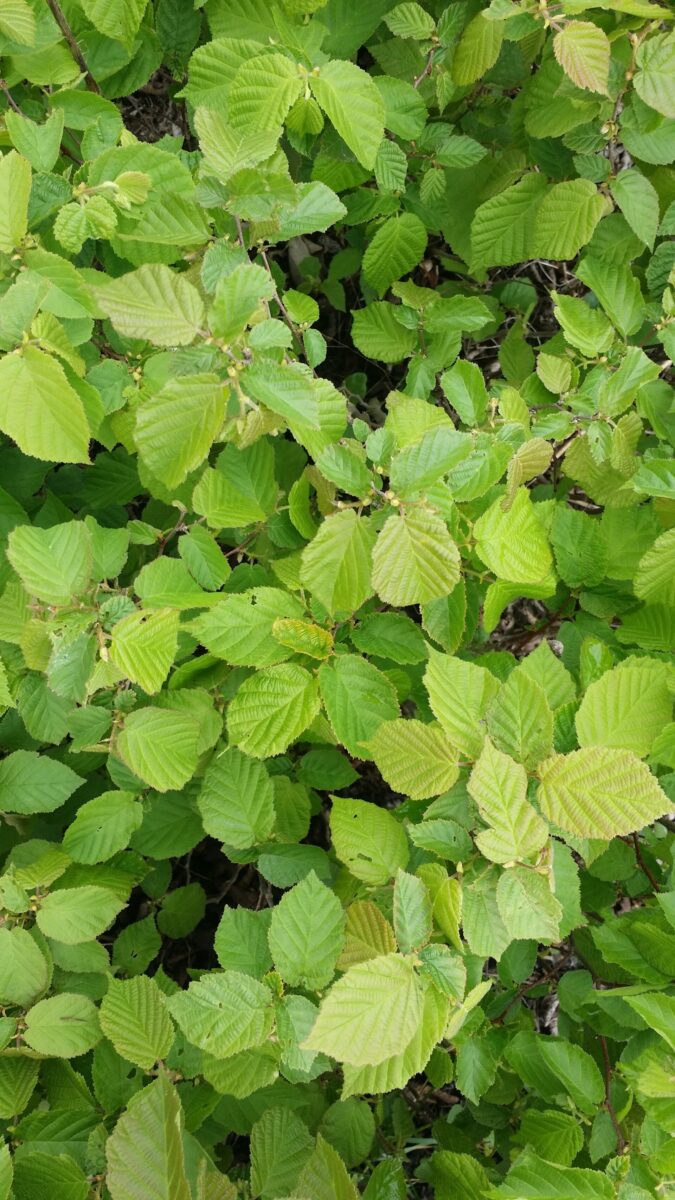
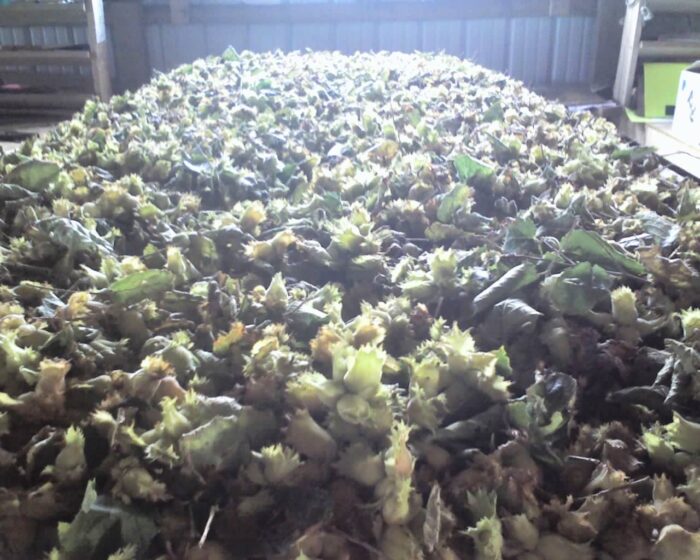
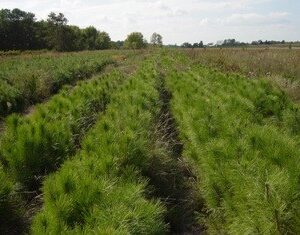
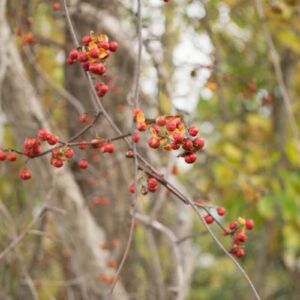
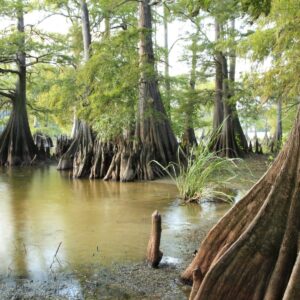
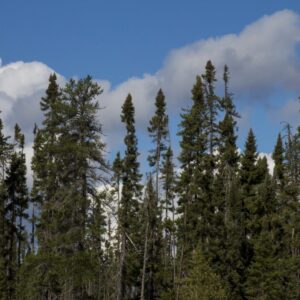

Reviews
There are no reviews yet.